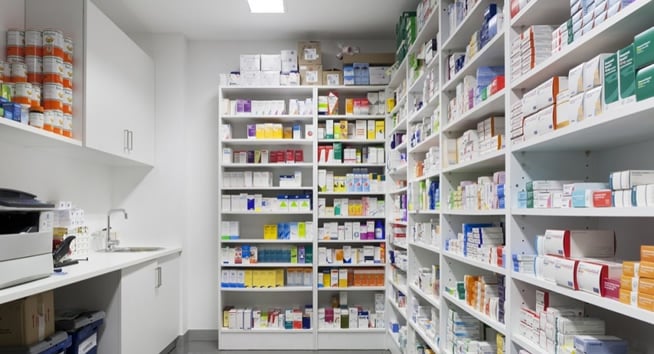The pharmaceutical landscape in Ghana has experienced a positive shift with a recent announcement of price reductions on medicines, ranging from 5% to 15%. This welcome news, jointly declared by the Ghana National Chamber of Pharmacy (GNCoP) and the Pharmaceutical Importers and Wholesalers Association (PIWA), comes as a direct result of the recent appreciation of the Ghanaian cedi against major foreign currencies. This strengthened currency has alleviated the financial burden on pharmaceutical importers, translating into lower costs for essential medicines and health products for the Ghanaian public.
The price reduction mechanism hinges on the reduced foreign exchange costs associated with importing pharmaceutical products. A stronger cedi means importers spend less on procuring medicines from international markets. This cost-saving is then partially passed on to consumers through lower prices. While the current stock in the market may still reflect the higher prices from the period of cedi depreciation, the ongoing positive currency trend is expected to continuously influence pricing downwards as newer, more affordably sourced stock enters the market. This dynamic interaction between currency fluctuation and pharmaceutical pricing underscores the interconnectedness of economic stability and public health accessibility.
It’s crucial to acknowledge that pharmaceutical importers have borne a substantial portion of the financial burden during the period of cedi depreciation. They absorbed a significant percentage of the increased import costs, effectively cushioning consumers from the full impact of the fluctuating exchange rates. This act of absorbing costs demonstrates a commitment by the pharmaceutical sector to maintain access to essential medicines even during challenging economic times. The current price reduction, therefore, represents not only the passing on of currency gains but also a partial recovery from the financial strain experienced during the cedi’s decline.
The decision to reduce prices is a strategic move aligned with the government’s broader economic recovery initiatives. Both GNCoP and PIWA have affirmed their commitment to supporting these efforts, recognizing the vital role of a stable economy in ensuring public health and consumer welfare. By lowering medicine prices, the pharmaceutical sector contributes directly to reducing inflation and stabilizing the economy. This collaborative approach underscores the importance of public-private partnerships in achieving national development goals.
The pharmaceutical sector plays a crucial role in ensuring medicine security and building long-term public health resilience within Ghana. This price reduction, therefore, is not merely a short-term measure but a step towards a more sustainable and accessible healthcare system. Continuous support for the pharmaceutical sector is essential to maintain this momentum and ensure the continued availability of affordable medicines for all Ghanaians. A robust and vibrant pharmaceutical sector contributes significantly to national health security and fosters overall societal well-being.
The current cedi appreciation and subsequent price reductions offer a window of opportunity for strengthening Ghana’s pharmaceutical sector. Sustaining this positive trend requires ongoing collaborative efforts between the government, pharmaceutical importers, and other stakeholders. Maintaining a stable currency, promoting local pharmaceutical production, and streamlining regulatory processes are essential for fostering a resilient and accessible pharmaceutical landscape. The commitment expressed by GNCoP and PIWA to work with all stakeholders reflects a collective vision for a healthier and more prosperous Ghana. This partnership-oriented approach is critical for ensuring the long-term sustainability of the pharmaceutical sector and its contribution to the overall well-being of the Ghanaian population.














